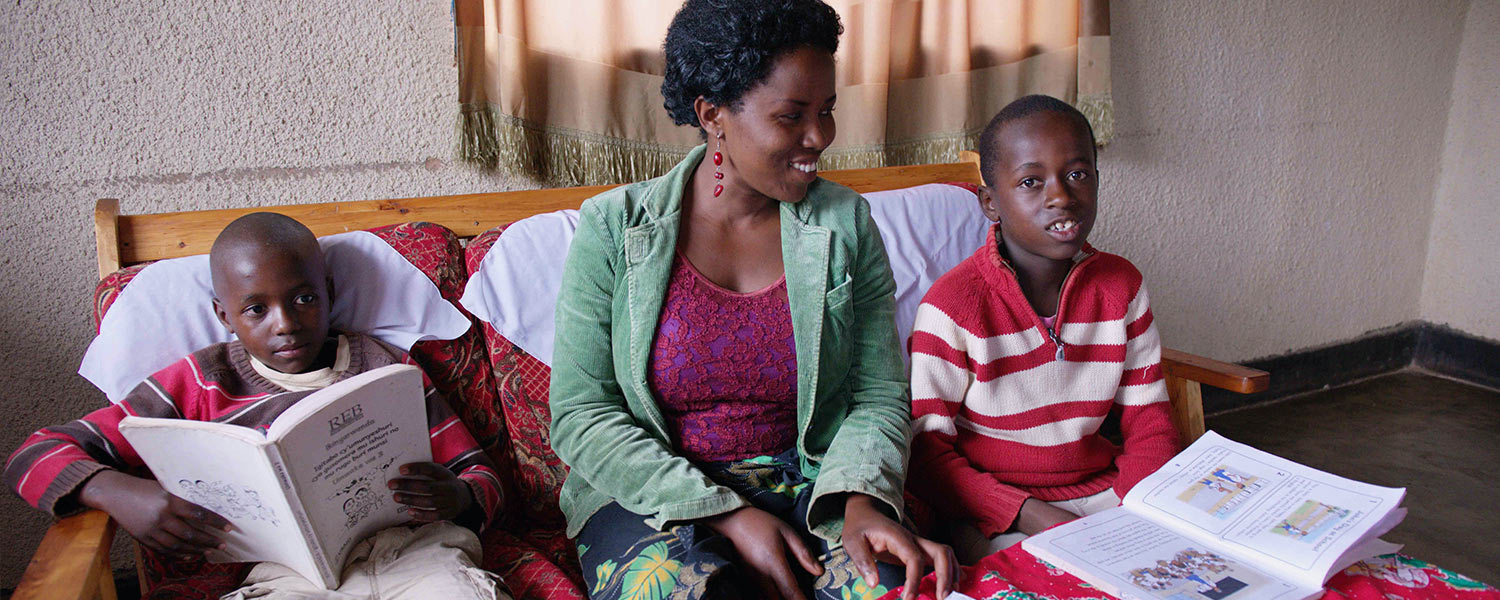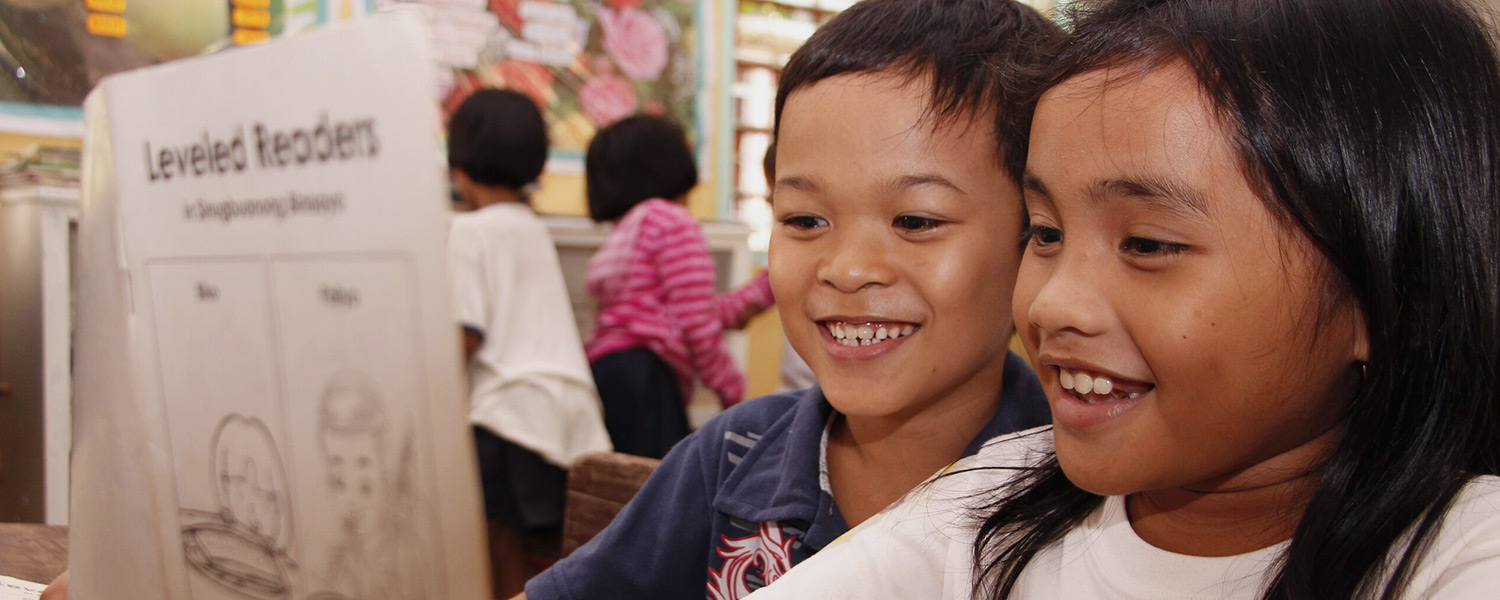
Families reading at home is just one way a culture of reading is growing in Rwanda.
Is anything more powerful than the ability to read and to write? Through written language, we convey beliefs, record knowledge, and explore our common humanity. Alphabets may be different around the world, but literacy—that core ability to make sense of the written word—is cherished across all cultures and traditions.
On this International Literacy Day (September 8), five EDC staff members reflect on why literacy matters. Follow us on Twitter and Facebook for more about literacy and International Literacy Day.
"Creating the concept and system of reading is one of humankind’s greatest intellectual achievements. Reading and writing magnify our capacity to learn, which is the competitive advantage of our species and the very foundation of human civilization. When a child learns to read, she unlocks and accelerates an expanding process of re-forming her self-identity and of enacting her will within the world. What more can you give her? To read is to better understand, and to understand is the greatest gift of being human."
"Sharing thoughts, ideas, and emotions is key to the human experience. Developing literacy skills facilitates effective communication. Over a lifetime, children hone their skills to read, write, speak, listen, think, and respond critically—skills that unlock the world’s secrets and provide unlimited possibilities. Literacy matters because of the endless doors it opens!"

After students in the Philippines learn how to read, they begin to read to learn.
"Strong literacy skills serve as foundational building blocks for positive social development. I’ve seen this pattern repeated all over the world. Literate mothers are better able to support their families’ health, and literate children and adults develop empathy through the stories they read. Empathy leads to social awareness and fosters more supportive communities.
"Unfortunately, too many children around the world are still not afforded the life-changing experience of learning how to read and write. We owe them this right of literacy and must continue our efforts to make reading a part of their lives."
"Natalie Babbitt, the acclaimed children’s author, once remarked, ‘It’s amazing that those 26 little marks of the alphabet can arrange themselves on the pages of a book and accomplish all that.’
"It’s true; the alphabet is a wonder. But it is also just a tool. It takes a skilled teacher to help any learner decipher those little squiggles so that they are transformed into words and ideas, into stories and songs. What we do with that knowledge, that literacy, is a true expression of humanity."
"Literacy matters because it brings students into a life-long community of learning that links people across borders. Literacy matters because it engage citizens in meaningful ways to participate in building a society and government of their choosing. Literacy matters because in a world with a widening gap between connected and unconnected, reading and writing and its partner, critical thinking, allow young and old to engage on equal footing."